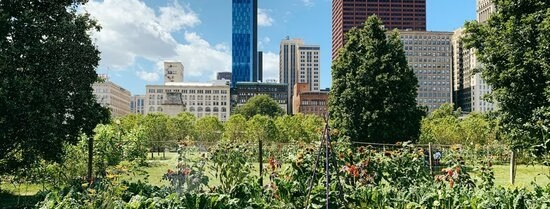What role can urban agriculture play to address locally some repercussions of the multiple crises (the looming food crisis, climate crisis and crisis of conventional agriculture) facing our globalized food system, as well as affecting our cities?
This international workshop aims to explore how current overlapping crises affect urban citizens and Urban Agriculture (UA), and how UA might help address some of these challenges.
It builds on research on, and experiences from, urban agriculture in the Netherlands, the EU and Asia, covering a variety of forms of urban agriculture ranging from home gardening and allotment gardens to re-purposed greenhouses and guerilla gardening.
The workshop will discuss issues such as:
- Can UA enhance awareness about environmental issues and climate change, and/or even help to mitigate some of the local effects of climate changes in cities?
- Would UA be able to provide (more) local and environmentally sound food to urbanites in the face of the challenges of conventional agriculture (and what conditions and policies would be needed for it)?
- Does UA show resilience itself and enhance social resilience of urbanites?
- Do the food, climate and energy crises affect UA negatively or does it spark growth and/or innovation?
- To what extent do UA initiatives foster local (food) democracy?
- What is the role of UA in more authoritarian regimes?
Programme
12:40-13:00 - Registration and coffee
13:00- 14:15 - Panel 1 (Political Ecology seminar)
- Lilian Pungas (Jena U./ISS) - Dachas and food democracy- what makes a (good) food citizen?
- Oane Visser (ISS), Ilja van Lammeren (ISS), Willem Hulsink (RSM, Erasmus U.) - The “multifunctional greenhouse”: re-purposing, frugal innovation & niche making in (peri)urban agriculture in The Hague-Rotterdam metropolis
14:15-14:30 - Coffee break
14:30-15:45 - Panel 2
Michaela Pixova (Charles U., Prague) & Christina Plank (U. of Natural Resources & Life Sc., Vienna) - Relocalizing food production in times of crisis: Urban governance in Prague and Brno
Marco Swart (t.b.c.) (NGO, Ons Eten/Our Food, The Hague) - Urban agriculture in The Hague
15:465-16:15 - Coffee break
16:15-17:30 - Panel 3 (Development Research Seminar)
- Petr Jehlička (Charles U., Prague) - Chinese home and guerilla gardening: The importance of preventing the loss of already existing sustainability
17:30-19:00 - Reception
Background
- The repercussions of the war in Ukraine signal the weaknesses of our food system, based on overlong, globalized food chains. It shows the vulnerability of the system to food price hikes and temporary unavailability of food products (such as sunflower oil, flour).
- The greenhouse sector in the Netherlands is now heading towards widespread bankruptcies, due to very high fuel costs. Some food processing firms have announced that they will stop production in winter. At the same time, conventional agriculture’s environmental challenges are becoming increasingly acute, with drastic measures to cut down livestock in for instance the Netherlands and Belgium.
- The effects of climate change are increasingly felt in both rural and urban areas.
With these economic and environmental challenges mounting, at the same time in various countries the democracy is in crisis, with falling levels of trust in governments, calling for more participatory governance.
- More information
This workshop is organized by Dr Oane Visser with the support of the Local Engagement Fund 2 (ISS), the Political Ecology research group and the Development Research Seminar series.
- Related content

